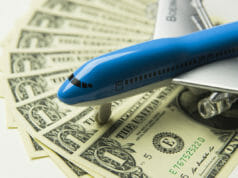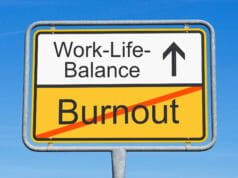In today’s fast-paced work environment, it is easy for one to become submerged in the workforce in an attempt to strive for the top. In the airline industry though, much is dictated by seniority, from schedules to assigned aircraft to hourly compensation. The amount a pilot works, or flies, will predominantly affect how that pilot is paid. Vacation for most is then a “reset,” allowing down-time to refresh the body from stress that the job demands. Others may utilize this break to explore the world or indulge in their hobbies. Regardless of how a pilot utilizes vacation time, there is doubt that it is required. Unless the pilot is financially strapped for money, maximum vacation time will be sought out each time, but significant variations may exist for someone depending on the airline’s work rules and contract. Differences such as time-off granted or compensation during vacation exist. Since the aforementioned weigh heavily on quality of life, it is important for pilots to be aware of how each airline handles vacations.
It should first be noted that there are two methods for how pilots obtain and utilize vacation within a specific airline: Paid-Time-Off bank and Accrued Vacation. The Paid-Time-Off bank is a bank generally allocated for sick calls, vacation time, and time off. A pilot earns a certain amount of hours toward the paid-time-off bank which is dependent on longevity. If a pilot calls in sick or has vacation, the paid-time-off bank will be reduced by the appropriate amount. In extreme cases, pilots who call in sick frequently may be faced with a decision to either not be paid for a sick call or not be paid for vacation. Some airlines offer another method, called “accrued vacation.” An airline will have a specific bank for vacation that is not used for anything else; the vacation days will also be determined by the pilot’s longevity. It is worth mentioning that a pilot’s longevity is not the same as seniority — longevity can be reduced if lengthy leaves of absences have been taken by the pilot. Furthermore, both banks can be cashed-out if a pilot resigns and has any unused vacation for the upcoming year or any accrued vacation for the following year.

Photos used with permission from Unspalsh.com
Vacation weeks are bid for by pilots by their seat and domicile in seniority order. Bidding varies drastically by airlines though. Some airlines will allow pilots to bid for each of their vacation weeks for the upcoming year during a set period of time. Other airlines will break the upcoming year into two sections, requiring their pilots to bid for vacation within those windows. Although not a clear detriment to quality of life, this can make planning for special occasions difficult.
The biggest difference in vacation among airlines occurs when it is time to bid for a monthly schedule. There are two forms of bidding for monthly schedules: “Line Bidding” and “Preferential Bidding System.” Without a doubt, line bidding benefits pilots the most. During it, a process called “vacation touching” will occur which will maximize days off for pilots. When pilots input their bid in a vacation month, any trip that touches a vacation week will be removed from that pilot’s schedule. Whatever trips remain determine the Line Value for that month. Pilots are paid the greater of Line Value or Minimum Monthly Guarantee (MMG), which is usually 75 hours. It is therefore not uncommon for pilots to turn one week of vacation into three consecutive weeks through line bidding. Although the pilot will be paid MMG during that month, he or she has the option to pick up trips for additional pay.
Preferential Bidding System will not grant as many days off for pilots as line bidding. Each vacation day, or day off, will have a certain amount of credit associated with it. Normally, the credit is the same as the airline’s minimum day protection, varying from three and a half hours to five hours per day. The vacation week is then loaded into PBS. The system must then award trips to that pilot that reaches a certain credit for the month, usually around the MMG for that airline. Although three weeks off would be rare to obtain through PBS, pilots can generally turn one week of vacation off into 12-16 consecutive days off, depending on seniority.
Working during vacation is almost always allowed. During line bidding, pilots should pay careful attention to how the contract is worded. Most likely, any trip picked up will be extra pay (on top of MMG). Some extreme circumstances exist where pilots will work for free; that is, any trip picked up or traded for in a vacation month will increase the pilot’s line value until that value is the same as the MMG. Additionally, if an airline utilizes a Paid-Time-Off bank, the airline may reimburse one’s vacation pay if a pilot decides to work on that day. This would prevent pilots from cashing in on extra pay.

There is a certain degree of freedom that exists when it comes time to moving vacation weeks around. Trading between two pilots is mainly allowed, as long as both pilots are in the same seat and domicile. Furthermore, a pilot is allowed to trade his/her week for another week if it is free—that is, no pilot owns that week off. Airlines will usually require an advance notice from the pilot in order to accomplish the trade. Depending on the airline, some require as much as two months notice before either week of vacation; others need the trade to be submitted before bidding for the next month’s schedule begins. As a last resort, pilots generally will be allowed to slide their vacation week by a few days (normally three). Prior notice must be made, and is usually done a few weeks before the vacation month begins. If a trip drops due to vacation touching caused by a vacation slide, the amount of credit associated with that week will generally be deducted from that pilot’s line value and MMG.
Vacation time is not the first thing that pops into a pilot’s mind when comparing different airlines as an employer. The benefits associated with vacation, though, can vary significantly from one airline to another. Important factors that differ include the method of accruing vacation, how to bid for vacation, and compensation during vacation. Ultimately, while vacation time is not a be-all-end-all in selecting an airline, it can have pronounced benefits for that pilot’s desires.

























































































































